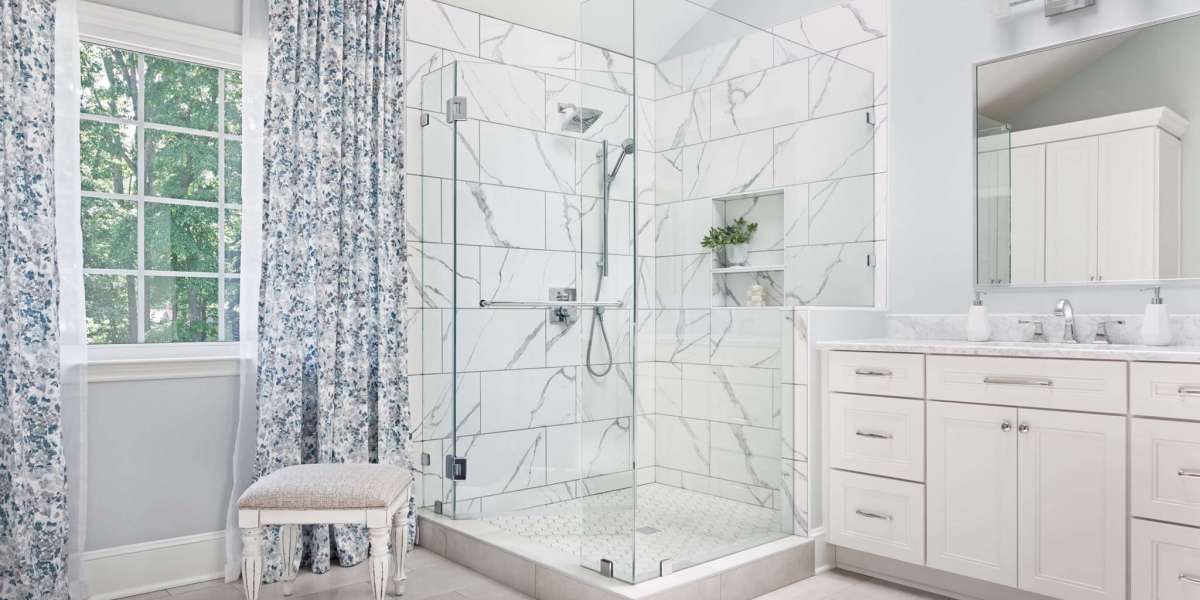The bathroom is one of the most personal spaces in a home—a place where you start and end your day, seek relaxation, and perform essential routines. Over time, even the most well-designed bathrooms can begin to feel outdated or lack the functionality you need. Bathroom remodeling is an opportunity to create a space that is both beautiful and highly functional, tailored to your specific needs and tastes. Whether you’re looking to refresh your bathroom or completely transform it, this guide will help you navigate the process of bathroom remodeling.
1. Planning and Budgeting
The success of any remodeling project starts with careful planning and realistic budgeting.
- Assess Your Needs: Start by evaluating your current bathroom. What do you like about it? What frustrates you? Consider how you use the space and what changes could improve its functionality, such as more storage, better lighting, or a larger shower.
- Set a Budget: Bathroom remodels can range from a few thousand dollars for minor updates to tens of thousands for a complete overhaul. Setting a budget that aligns with your goals is crucial. Include a contingency fund for unexpected expenses that often arise during renovations.
- Design Inspiration: Gather ideas from magazines, websites, or social media platforms like Pinterest. Having a clear vision of the style and features you want will guide your decisions throughout the project.
2. Design and Layout
The design and layout of your bathroom are key to achieving a space that is both functional and aesthetically pleasing.
- Maximize Space: Bathrooms are often small, so making the most of every inch is important. Consider space-saving solutions like wall-mounted vanities, compact fixtures, and built-in storage to keep the area organized and clutter-free.
- Choose a Layout: Depending on the size and shape of your bathroom, you may want to stick with the existing layout or explore new configurations. For example, replacing a traditional tub with a walk-in shower can free up space and create a modern look.
- Select Materials: Materials for flooring, walls, and countertops should be both durable and water-resistant. Popular choices include porcelain or ceramic tiles for floors and walls, and quartz or granite for countertops.
3. Choosing Fixtures
Fixtures are the backbone of your bathroom’s functionality, and selecting the right ones is essential.
- Shower or Tub: Decide whether you want a traditional bathtub, a walk-in shower, or a combination of both. Walk-in showers with frameless glass doors offer a sleek, modern look and are easier to maintain. Freestanding tubs can create a luxurious focal point in the bathroom.
- Vanity and Sink: The vanity is a central element in any bathroom, providing storage and counter space. Choose a vanity that fits the size of your bathroom and your storage needs. Vessel sinks add a contemporary flair, while undermount sinks offer a clean, streamlined appearance.
- Toilet: Consider upgrading to a more efficient, water-saving toilet. Dual-flush models allow you to choose between a low-flow flush for liquid waste and a more powerful flush for solid waste, helping to conserve water.
4. Lighting
Proper lighting is essential in the bathroom, where tasks like shaving or applying makeup require clear visibility.
- Ambient Lighting: Ceiling-mounted fixtures or recessed lights provide general illumination for the entire bathroom. For smaller bathrooms, a single central fixture might suffice, while larger spaces may require multiple light sources.
- Task Lighting: Focused lighting around the vanity is crucial for grooming tasks. Sconces on either side of the mirror or a backlit mirror can help eliminate shadows and provide even lighting.
- Accent Lighting: Use accent lighting to highlight features such as a decorative tile wall, artwork, or a statement mirror, adding depth and interest to the room.
5. Storage Solutions
A well-organized bathroom is key to maintaining a clutter-free space.
- Built-in Storage: Recessed shelves, medicine cabinets, and niches in the shower can maximize storage without taking up floor space. Custom cabinetry can also be designed to fit your specific storage needs.
- Vanity Storage: Choose a vanity with drawers and compartments to keep toiletries, towels, and other essentials organized. Drawer dividers and pull-out trays can make accessing items easier.
- Open Shelving: Open shelves add a decorative touch and provide easy access to frequently used items. However, they require careful organization to maintain a tidy appearance.
6. Flooring and Walls
The flooring and walls in your bathroom should be both stylish and practical.
- Tile Flooring: Tile is a popular choice for bathroom floors because it is water-resistant, durable, and available in a wide range of colors and patterns. Consider heated floors for added comfort, especially in colder climates.
- Wall Treatments: Tile, paint, and wallpaper are all options for bathroom walls. Subway tiles are a classic choice, while bold colors or patterned tiles can make a statement. For a luxurious touch, consider adding wainscoting or decorative molding.
- Waterproofing: Proper waterproofing is essential in bathrooms to prevent moisture damage. Ensure that all materials and installations are designed to withstand the humid environment.
7. Ventilation
Proper ventilation is crucial in a bathroom to prevent mold and mildew.
- Exhaust Fan: An exhaust fan is a must-have in any bathroom to remove moisture and odors. Choose a fan with a capacity suited to the size of your bathroom, and consider one with additional features like a built-in light or heater.
- Natural Ventilation: If possible, incorporate windows or a skylight to allow natural light and fresh air to enter the bathroom. Operable windows can provide ventilation and reduce the need for artificial lighting during the day.
8. Final Touches and Decor
The final touches will bring your bathroom remodel together and reflect your personal style.
- Hardware: Update your bathroom with new hardware, such as faucets, towel bars, and drawer pulls. Choose finishes that complement your overall design, such as chrome, brushed nickel, or matte black.
- Mirrors: A well-placed mirror can enhance the sense of space and light in your bathroom. Consider a large, frameless mirror for a modern look or a decorative framed mirror for a more traditional feel.
- Accessories: Add personal touches with bath mats, towels, artwork, and plants. These elements can enhance the overall aesthetic and make the bathroom feel more inviting.
Conclusion
Bathroom remodeling is a rewarding project that can significantly enhance the comfort and value of your home. By carefully planning your design, choosing the right fixtures and materials, and paying attention to details like lighting and storage, you can create a bathroom that is both functional and beautiful. Whether you're going for a sleek, modern look or a cozy, traditional vibe, your dream bathroom is within reach.








